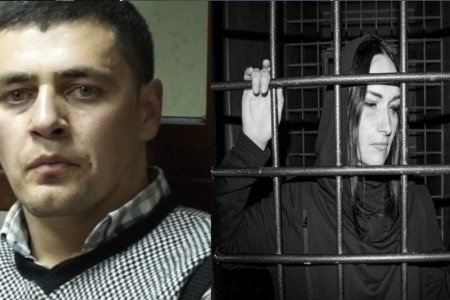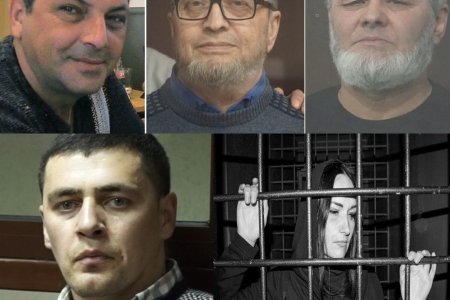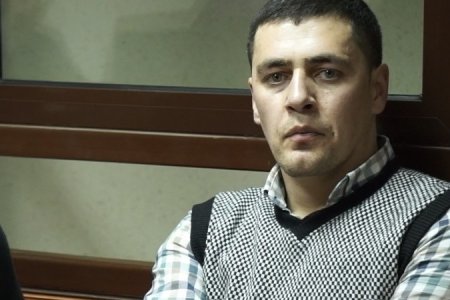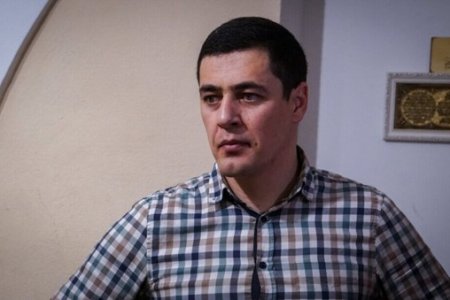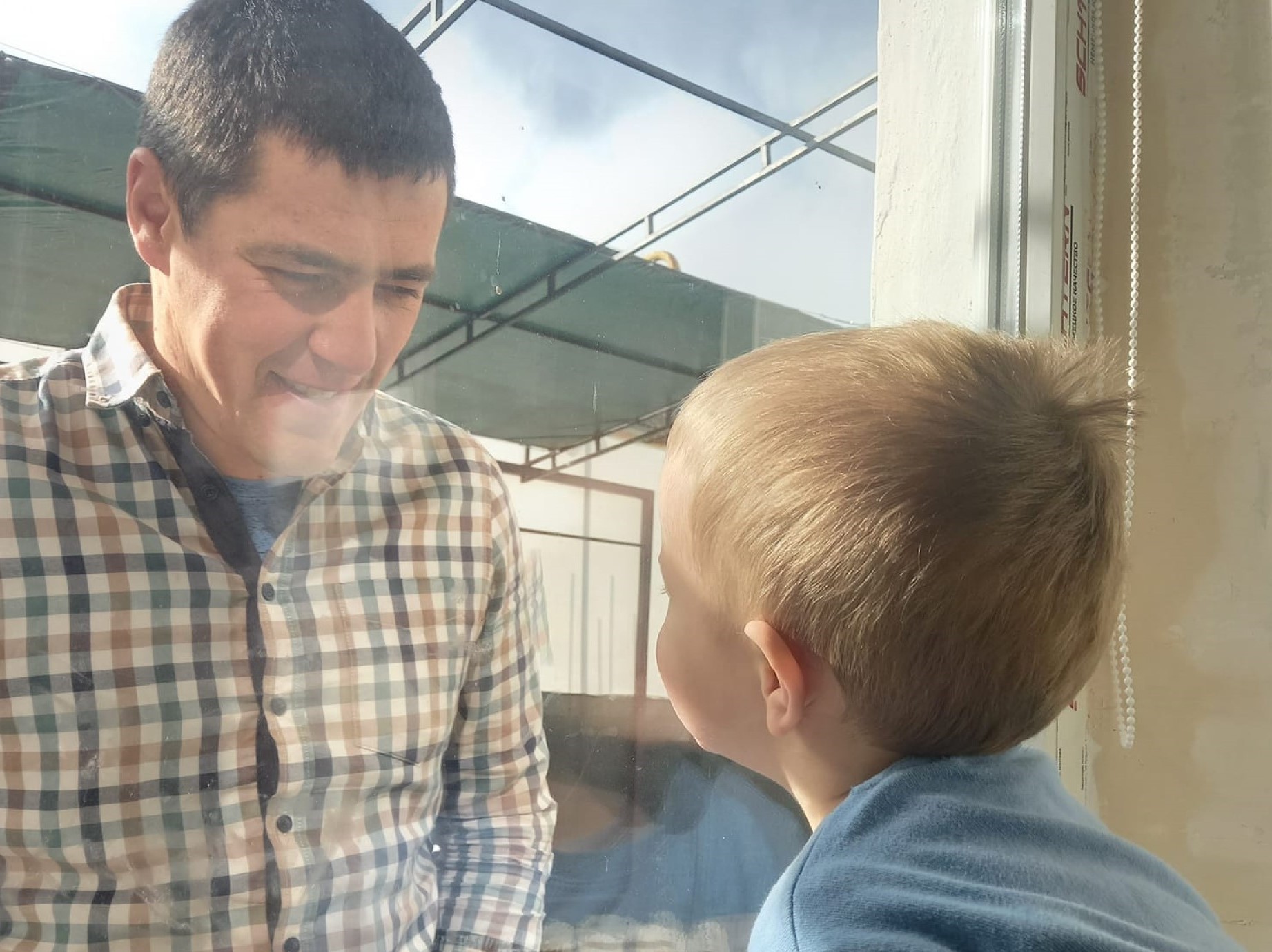
A court in Russia has refused to order the release of Crimean Solidarity civic journalist Amet Suleimanov despite receiving clear evidence from doctors that at least two of his life-threatening medical conditions should preclude his imprisonment.
Lilia Liumanova reports that the court hearing over her husband’s imprisonment took place on 26 March at the Frunze Court in Vladimir. This is almost a year after the Russian authorities flouted an express order from the UN’s Committee against Torture and, on 5 April 2023, took Suleimanov into custody. Liumanova and her husband’s lawyers immediately lodged an appeal for his release on the grounds of his dangerously poor health and the conditions in Russian and Russian occupation penal institutions. At that point Suleimanov was imprisoned in the appalling SIZO [remand prison] in Simferopol. Liumanova explains that the application first came before an occupation ‘court’ in Simferopol, however the Russians moved Suleimanov to Prison No. 2 in Vladimir oblast, with this using as grounds for transferring examination of the application to the court in Vladimir.
In his letters, Suleimanov explained that he had been taken to a penal service tuberculosis clinic where he received a medical examination. Later, he was taken to another hospital where he was seen by a medical commission.
Liumanova says that she has read through the assessment that Suleimanov received with a doctor. The list of conditions found included two illnesses that are on Russia’s list of conditions which constitute grounds for releasing him from custody. Comparison of this assessment with those obtained earlier also confirmed that Suleimanov’s condition had deteriorated.
The trouble with members of penal system medical commissions is that they doubtless understand that they are being asked for an assessment of a political prisoner, and are frightened of ‘rocking the boat’ by concluding that there are grounds for the prisoner’s release. Suleimanov explained in his letter that there were four members of the so-called ‘medical commission’. All of them ‘unanimously’ decided that “the prisoner does not have illnesses from the list of illnesses precluding serving a term of imprisonment”. It is hard to believe that any of these members, who must have medical training, were unaware that they were lying, and placing Suleimanov’s life in immediate danger. One of these individuals even stated that Suleimanov could only be released 20 minutes before dying.
After this, the court rejected the application and ruled that Suleimanov should remain in prison. “In their words, he is not yet feeling absolutely terrible.”
The ruling, Suleimanov said, was to be expected, and the latest confirmation that people’s fate, their health and life are viewed as of no value. The main point of the hearing would seem to have been that, at least, via videolink, Suleimanov could see and exchange greetings with his family and lawyers. They, in turn, will be appealing against this ruling.
Such flagrant disregard for human life would be shocking even if the person in question had committed a crime. Amet Suleimanov is a political prisoner, persecuted like very many other members of the Crimean Solidarity human rights movement, for his civic journalism highlighting repression in occupied Crimea and showing solidarity with political prisoners.
Suleimanov (b. 1984) suffers from chronic rheumatic heart disease, aortic insufficiency, coronary artery disease and third level mitral valve prolapse. He urgently needs a heart valve transplant.
Russia is a party to the Convention against Torture and Other Cruel, Inhuman or Degrading Treatment or Punishment, and cannot deny the jurisdiction of the UN’s Committee against Torture. It has, nonetheless, flouted CAT’s order on 22 February 2023 that it abstain from implementing the 12-year prison sentence passed against the civic journalist and recognized political prisoner. CAT also asked Russia to ensure that Suleimanov received a comprehensive medical examination in a specialized medical facility, as well as heart surgery and/or treatment in accordance with the results of the examination. CAT’s intervention came just 12 days after Russia effectively tortured another Crimean Tatar political prisoner, Dzhemil Gafarov, to death. Although neither man should ever have been imprisoned, the situation in Suleimanov’s case is especially shocking as the FSB themselves understood, when they came for the civic journalist, that his state of health meant he would be unlikely to survive to the ‘trial’ if imprisoned. He became the first of a very small number of political prisoners who was placed under house arrest until after the sentence was upheld at appeal level.
The Russian FSB came for Amet Suleimanov (b. 1984); the two elder sons of a renowned Crimean Tatar historian – Seitumer Seitumerov (1988) and Osman Seitumerov (b. 1992) and their maternal uncle Rustem Seitmemetov (b. 1973) on 11 March 2020.
The charges against all of the men differed little from the claim of ‘counter-revolutionary terrorist propaganda’, used during Stalin’s Terror to execute the Seitumerov brothers’ great-grandfather. In occupied Crimea, Russia is using a deeply flawed Supreme Court ruling from 2003 to imprison men on ‘terrorism’ charges without even accusing them of a recognizable crime, let alone coming up with convincing evidence. The 2003 ruling labelling as ‘terrorist’ the peaceful transnational Hizb ut-Tahrir Muslim organization, which is legal in Ukraine and not known to have committed acts of terror anywhere in the world. Russia has been using this ruling since 2015 in occupied Crimea as a weapon of repression, especially against Crimean Tatar civic journalists and activists. No proof is even needed of actual involvement in Hizb ut-Tahrir, since the FSB invariably plant ‘prohibited literature’ which they then claim to have found during armed searches which lawyers are pretended from being that. They then send transcripts of illicitly taped and quite innocuous conversations about religion, Russian persecution, events in Crimea to their own FSB-‘experts’ who claim that this or that word ‘proves’ involvement in Hizb ut-Tahrir. They also recruit ‘anonymous witnesses’ who invariably repeat the indictment, while proving suspiciously unable to provide any other details about the defendants whom they claim to have known well. All of this is seen and clearly understood by the ‘judges’ who prevent the defence from asking questions which demonstrate that such ‘witnesses’ are lying and that the ‘experts’ have no competence to express an opinion.
Seitumer Seitumerov was charged under the more serious Article 205.5 § 1 of Russia’s criminal code with ‘organizing a Hizb ut-Tahrir group’, while his brother, uncle and Suleimanov were charged with ‘involvement’ in this entirely unproven ‘group’, under Article 205.5 § 2. All of the men were also accused of ‘planning a violent uprising’ (Article 278) although even the FSB admitted that not one of them was suspected of actions or direct plans to commit any action aimed at ‘overthrowing the Russian constitutional order’
The three family members were immediately remanded in custody and remain imprisoned to this day. Suleimanov was held under house arrest, ‘attending’ the ‘trial’ via video link from occupied Crimea.
Despite the flawed charges, non-existent evidence and the fact that any custodial sentence would kill one of the men, prosecutor Yevgeny Nadolinsky demanded horrific sentences against all four men, including 13 years in the case of Suleimanov (whom he had previously tried to get remanded in custody). On 29 October 2021, three ‘judges’ from the Southern District Military Court in Rostov (Russia) - Igor Kostin (presiding judge); Roman Plisko and Yevgeny Zviagin – largely obliged, sentencing Seitumer Seitumerov to 17 years; Osman Seitumerov to 14 years; Rustem Seitmemetov to 13 years and Amet Suleimanov to 12 years. All of these sentences are for the worst of Russian penal institutions, with the first 3.5 years to be spent in a prison, where the conditions are most shocking.
These sentences were upheld on 9 February 2023, by ‘judge’ Aleksandr Aleksandrovich Mordovin from the Military Court of Appeal in Vlasikha (Moscow region).
On 24 August, the Russian FSB came for six more Crimean Solidarity civic activists, including the last and youngest son of historian Shukri Seitumerov and his wife Lilia. 23-year-old Abdulmedzhit Seitumerov is now facing the same horrific sentences, without any crime, as his brothers (see: Russian FSB seize Crimean Tatar family’s last son in new wave of terror against Crimean Solidarity activists )
Amet Suleimanov’s life is on the line. Please help by asking politicians in your country to contact diplomats in Russia. Their attention and, possibly, visits would send an important message to Moscow and could help save Amet’s life.
See: SOS! Foreign diplomats in Russia can help Crimean Tatar and other Ukrainian political prisoners!
